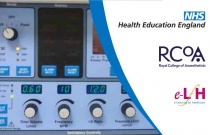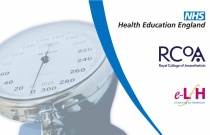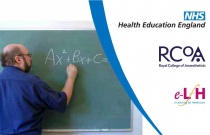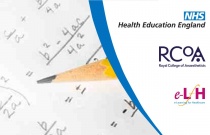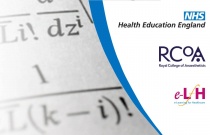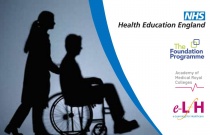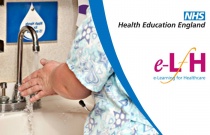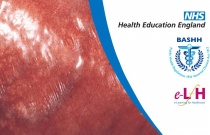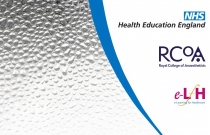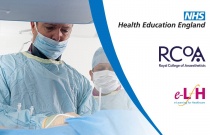Implementing Drug Abuse Treatment in Criminal Justice Settings
Health & Justice article authored by Ducharme et al.
1.00 Hours
This course was developed from the Health & Justice article authored by Ducharme et al. and has the purpose of being both an introduction to the National Institute on Drug Abuse’s work in the area of linking offender populations with effective treatment for drug abuse, HIV, and other related conditions for which they are at high....
Neonatal Care
Medical Education Systems, Inc.
30.00 Hours
The healthcare goals in neonatal intensive care are primarily to provide the opportunity for survival until the neonate’s body systems can more fully develop, enabling their natural defenses to mature. In the past 20 years, neonatal care has developed into an important healthcare specialty, complete with highly specialized criti....
Hypertension for Licensed Clinical Staff
Sheila Richmeier, MS, RN, FACMPE
1.00 Hours
This course develops the knowledge and skills needed to recognize the signs and symptoms of hypertension, understand the disease process and recognize the risk factors of the disease. The content will introduce testing and medications used for diagnosing, treating, and managing hypertension, and will explore the actions that car....
Hand Therapy and Rheumatoid Arthritis
Medical Education Systems, Inc.
6.00 Hours
Hand therapy is the art and science of rehabilitation of the upper quarter of the human body. Hand therapy is a merging of occupational therapy and physical therapy theory and practice that combines comprehensive knowledge of the upper quarter, body function, and activity. Using specialized skills in assessment and treatment, ha....
Intrapartum Nursing Management of Preterm Labor
Audrey Lyndon, PhD, RNC, CNS-BC, FAAN
5.00 Hours
Designed for registered nurses who provide triage, stabilization and intrapartum care for women at risk for preterm birth due to preterm labor or preterm premature rupture of membranes. Reviews evidence-based practices for optimizing the health of infants born prematurely and for supporting the health of women and families facin....
Early stage breast cancer
Caitriona Duggan
This module outlines what early stage breast cancer is. It highlights the epidemiology, pathogenesis and risk factors of breast cancer. It summarises the complex staging and management options of the various stages which comprise an early stage breast cancer.
Electrical Safety 2
Patrick Magee
0.50 Hours
The session will describe numerous ways of improving the electrical safety of electromedical equipment. It will describe the electrical hazards associated with the use of diathermy and the occurrence of sparks in the operating room.
Model Construction: Co2 and Alveolar Ventilation
Steven Cruickshank
0.50 Hours
This session considers the relationship of alveolar ventilation and the resulting arterial carbon dioxide partial pressure (PaCO2), and shows how this model can be applied to make further predictions in appropriate circumstances.
Mathematical Functions
Steven Cruickshank
0.50 Hours
This session consolidates and builds upon previous sessions about the use of mathematical tools. These tools are an essential component of many physiological models that the anaesthetist may need to use.
Basic Calculus - Differentiation
Steven Cruickshank and Patrick Magee
0.50 Hours
The session introduces the subject of calculus. This is the mathematics of change. The two main branches of the subject are differential calculus and integral calculus. This session deals with the topic of differentiation which has many applications in science and engineering. We concentrate on ideas rather than techniques.
Logarithms and pH
Steven Cruickshank
0.50 Hours
This session makes the connection between pH and H+ concentration by exploring the properties of logarithms.
Mental Capacity Assessment
Ginny Wright
0.50 Hours
Mental capacity is the key to many important medical and welfare decisions. This session will consider how and when to assess mental capacity.
Injury Prevention
David H. Stone
0.25 Hours
This session aims to raise awareness of the causes, risk factors and context of unintentional child injury. Understanding both the conceptual and practical approaches to effective unintentional child injury prevention forms an integral part of this session.
Identifying carers
Chantal Simon
0.50 Hours
Carers are more likely to have seen their GP recently than any other support professional. It is vital for GPs within primary care teams to know how to identify and support carers in order to maintain the health of the carer and preserve the caregiving situation.
Infection Prevention and Control
Elizabeth Burgess-Havard
0.50 Hours
This session explores the issues associated with infection prevention and control, particularly those surrounding hand hygiene. Later sections identify the groups at greatest risk of harm and offer guidance on how to refer any concerns over poor practice.
Genital Lumps
Kelly Morris and Lynn Riddell
0.50 Hours
This session explains the clinical approach to genital lumps and lists the key differential diagnoses.
Nitrous Oxide and Xenon
Tom Peck
0.50 Hours
This session covers the storage, production and physicochemical properties of nitrous oxide, N2O. It moves on to examine the Concentration Effect and Second Gas Effect. The physicochemical properties of xenon, Xe, are detailed, along with its similarities and differences to N2O.
Ketamine
Eschtike Schulenburg and Anthony Absalom
0.50 Hours
This session covers the induction agent ketamine. Ketamine is unique due to its potent analgesic properties, but its routine use is limited by adverse psychological emergence reactions. Renewed interest in ketamine is due to the availability of S(+) ketamine and its role in acute opioid tolerance and hyperalgesia.
Non-Steroidal Anti-Inflammatory Drugs (NSAIDS)
Matthew Davies and Richard Griffiths
0.50 Hours
This session will provide a brief overview of the history of NSAIDs, their chemistry, and a profile of their uses. Their side-effects, mechanism of action and interaction with isoforms of cyclo-oxygenase will also be discussed.
Drugs and the Sympathetic Nervous System
Rowan Hardy
0.50 Hours
This session discusses the mode and duration of action, metabolism, side-effects and the use in theatre of drugs that stimulate adrenergic receptors, including direct and indirect acting sympathomimetics.
Inotropes and Vasoconstrictors
Geoff Lockwood
0.50 Hours
This session examines the inotropes and vasoconstrictors that are often administered in intensive care units.
Drugs Acting on The GI Tract
Kenwyn James
0.50 Hours
This session looks at medications used for their effects on the gastrointestinal tract. It discusses the intended benefits of such medications along with some of the less desirable effects.
Kinetic Theory of Gases
Elke Kothmann and Kaye Cantlay
0.50 Hours
This session introduces the kinetic theory of gases which describes the behaviours of gases at a molecular or microscopic level. This behaviour is then used to describe the macroscopic properties of gases.
Heat Transfer
Ben Messer and Kaye Cantlay
0.50 Hours
This session explores the factors that affect heat loss in the theatre environment and ways in which to reduce those losses.





